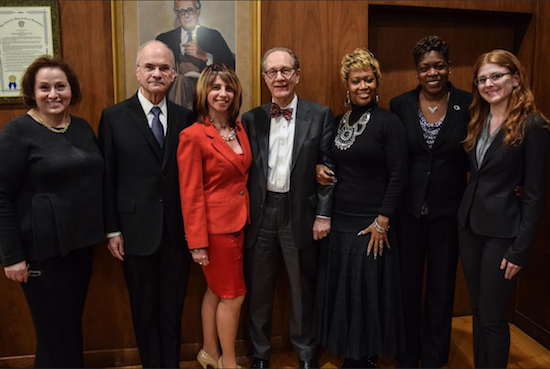Brooklyn Bar holds ‘How to Become a Judge’ panel

The Brooklyn Bar Association held a “How to Become a Judge” seminar on Tuesday night where Hon. Frank Seddio hosted a group of six judges and lawyers who gave a presentation for anyone considering a judicial career.
The crowd ranged from highly experienced lawyers to law school students thinking about their long-term future. They were treated to dinner from Eamonn’s Of Brooklyn while listening to presentations from Hon. Miriam Cyrulnik, Hon. Evelyn J. LaPorte, Hon. Fidel F. Del Valle, Rachel H. Nash, Esq., Hon. Gary F. Marton and Hon. Sharen D. Hudson-Williams.
“The criminal and family courts need demonstrated, dedicated, industrious, knowledgeable and capable men and women of the highest integrity,” Cyrulnik said. “With the rarest of exceptions there is no easy path to the bench, but on the other hand, it is not an easy job.”

Brooklyn Boro
View MoreNew York City’s most populous borough, Brooklyn, is home to nearly 2.6 million residents. If Brooklyn were an independent city it would be the fourth largest city in the United States. While Brooklyn has become the epitome of ‘cool and hip’ in recent years, for those that were born here, raised families here and improved communities over the years, Brooklyn has never been ‘uncool’.